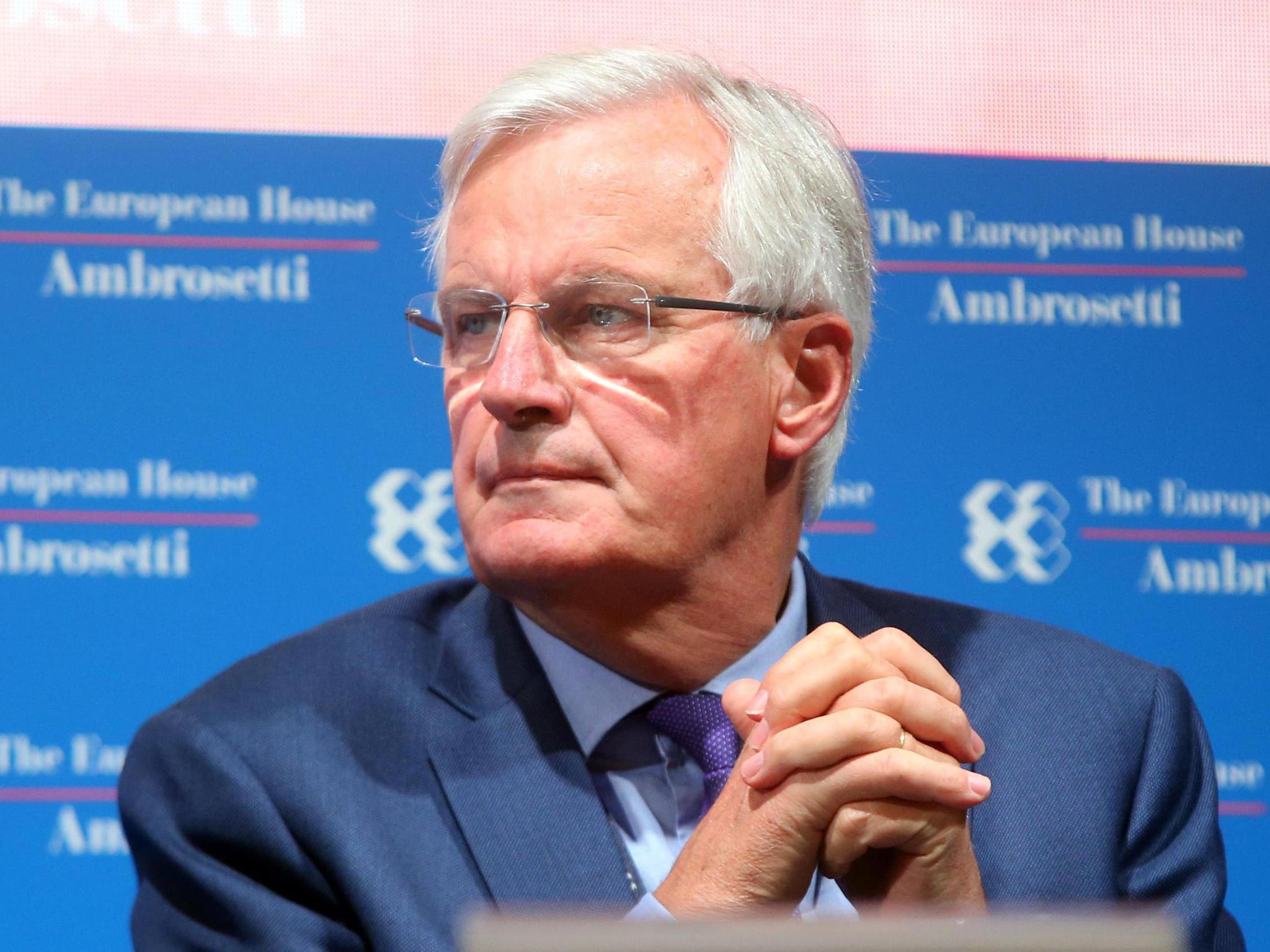A trade deal between the UK and the EU should not be expected soon after Britain formally leaves the bloc, the European Union’s chief negotiator has reportedly said.
Michel Barnier, who is touring Europe to meet officials and business groups, told an audience that such a deal would take “much more time” than the current phase of negotiations, according to sources inside the meetings who spoke to Politico Europe.
The European Union has refused to open trade talks about the future relationship with Britain until it feels “sufficient progress” has been made on issues relating to its departure – such as what will happen to the Northern Ireland border, EU citizens or the divorce bill.
Mr Barnier has previously ruled out giving Britain a special deal that would give the UK the domestic flexibility of Canada’s trade links with the EU but the close market access of Norway’s close integration.
“We are not going to mix up models,” he is said to have told his audience at the private meetings, “but each model is available”.
Mr Barnier’s tour is now taking him to Italy, where he will stage an informal meeting with the European affairs committee of the country’s chamber of deputies: the lower house of its parliament.
Recently he has met the Scottish Parliament’s European affairs committee, as well as a delegation of Portuguese diplomats.
Brexit: the deciders
Show all 8Negotiations between the UK and the EU will resume in Brussels on Monday next week, having being postponed so that Theresa May can deliver a speech in Florence about the future of talks.
The address is expected to be her most significant intervention in the process since her Lancaster House speech in January, when she committed to leaving the single market.
Subscribe to Independent Premium to bookmark this article
Want to bookmark your favourite articles and stories to read or reference later? Start your Independent Premium subscription today.


Join our commenting forum
Join thought-provoking conversations, follow other Independent readers and see their replies